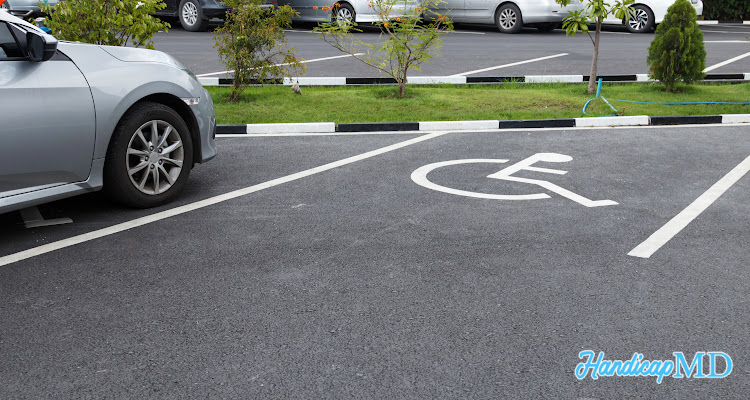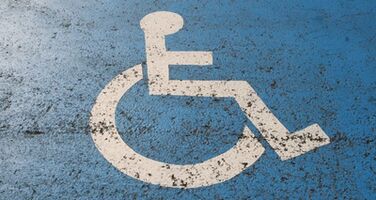
Unveiling the Rules and Regulations of Using a Handicap Placard in Georgia
Introduction
If you or a loved one holds a handicap placard and resides in Georgia, it's important to be well-versed in the rules and regulations surrounding its use. A handicap placard can significantly improve the quality of life for individuals with disabilities by providing convenient parking options and access to essential services. In this detailed guide, we'll unveil everything you need to know about using a handicap placard in Georgia, ensuring that you can navigate the process with confidence and ease.
Unveiling the Rules and Regulations of Using a Handicap Placard in Georgia
Using a handicap permit in Georgia comes with certain rules and regulations to ensure fairness, accessibility, and safety for everyone. Here's a comprehensive overview of these guidelines:
Eligibility Criteria for a Handicap Placard
To qualify for a handicap placard in Georgia, individuals must have a disability that affects their mobility. This could include difficulty walking, the need for mobility aids, or severe visual impairments. The disability should be certified by a licensed medical professional. Eligibility ensures that only those who genuinely require accessible parking benefit from the privilege.
Application Process
Obtaining the Application: To start the process, you'll need to acquire the "Disabled Person's Parking Affidavit" form. This form can be downloaded from the Georgia Department of Revenue's official website or obtained at your local Department of Driver Services (DDS) office.
Completing the Form: Carefully fill out the form, providing accurate information about yourself and your disability. You might need your doctor's certification of the disability, so keep this handy.
Submitting the Application: Submit the completed form, along with any required documents, to your local DDS office. You may be required to pay a nominal fee, but this varies depending on the type of placard you're applying for.
Types of Placards
Georgia offers two types of handicap placards: temporary and permanent. Temporary placards are typically valid for six months and are suitable for those with short-term mobility issues. Permanent placards are valid for four years and cater to individuals with long-term disabilities.
Proper Use of the Handicap Placard
Designated Parking Spaces: Handicap placards allow you to park in designated accessible parking spaces. These spaces are strategically located for easy access to buildings and facilities.
Using the Placard in Any Vehicle: The placard is not limited to a specific vehicle; you can use it in any vehicle you're traveling in, whether you're the driver or a passenger.
Displaying the Placard: Hang the placard on the rearview mirror when your vehicle is parked. This makes it visible to parking enforcement officers.
Where You Can't Use the Handicap Placard
Misuse of the Placard: It's essential to adhere to the rules to maintain the integrity of the system. Misusing the placard can result in fines or even legal consequences.
Parking in Unauthorized Areas: While the placard grants you special parking privileges, it doesn't allow you to park anywhere. Always follow parking regulations, even when using your handicap placard.
Frequently Asked Questions (FAQs)
Can I use my out-of-state handicap placard in Georgia?
Yes, Georgia recognizes valid out-of-state handicap placards. However, it's recommended to check with the local DDS office for any specific requirements or regulations.
Can I lend my handicap placard to a friend or family member?
No, handicap placards are non-transferable. They are issued for the use of the individual to whom they are registered. Lending your placard to someone else can result in penalties.
Can I use the handicap placard in metered parking spaces?
In Georgia, you can use your handicap placard in metered parking spaces without paying the metered fee. However, this rule may vary in different states.
How do I renew my permanent handicap placard?
To renew your permanent handicap placard, you'll need to complete a new application and provide updated medical documentation. The renewal process can usually be initiated a few months before your current placard expires.
What should I do if my handicap placard is lost or stolen?
If your handicap placard is lost or stolen, you can request a replacement from your local DDS office. You may need to provide identifying information to ensure the placard's proper issuance.
Are there penalties for violating handicap placard regulations?
Yes, there are penalties for misusing a handicap placard or parking in unauthorized areas. These penalties can include fines, the revocation of the placard, or even legal actions.
Conclusion
Navigating the rules and regulations of using a handicap placard in Georgia is essential for ensuring a fair and accessible parking system. By understanding the eligibility criteria, application process, proper usage, and restrictions, individuals with disabilities can enjoy the convenience and benefits that the placard offers. Remember to always adhere to the guidelines and respect the privileges granted by the placard to maintain the integrity of the system.
.png)






